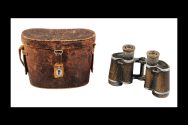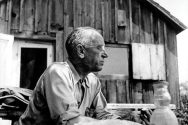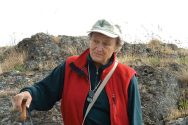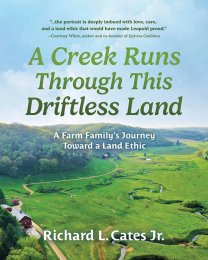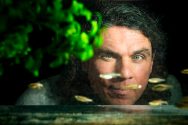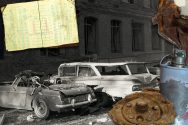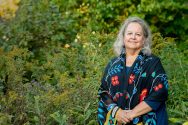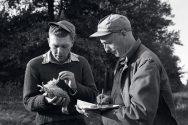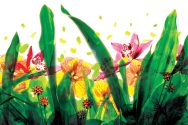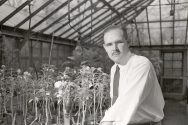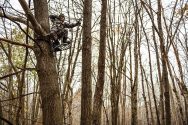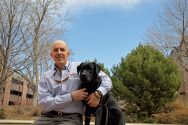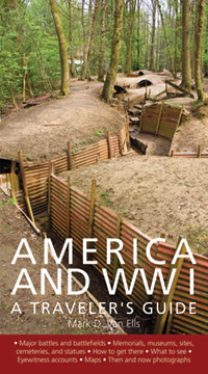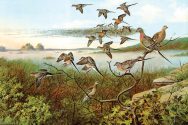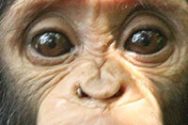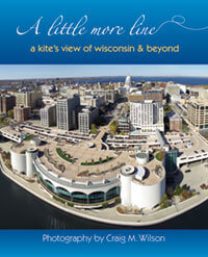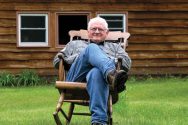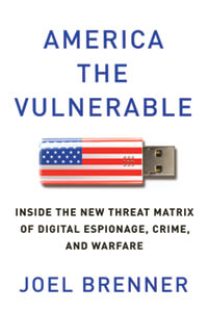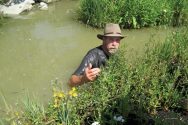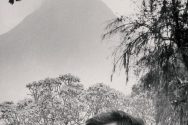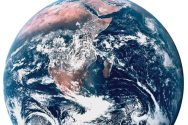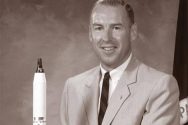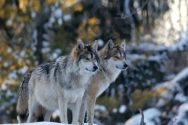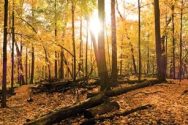UW Archives is home to items that belonged to the ecologist who became the most influential conservation thinker of the 20th century.
Search results for: aldo leopold
26 stories. Showing page 1 of 1.
Ecologists re-create the sound of a morning with Leopold.
“We can learn plenty from the past,” says Estella Leopold ’48.
Richard Cates PhD’83 recounts his family’s journey from owning to knowing their farmstead in A Creek Runs through This Driftless Land.
UW researchers preserve animal DNA for species that face extinction.
These unusual artifacts shine a light on campus history, from lost traditions to lesser-known heroes.
Robin Wall Kimmerer MS’78, PhD’83 braids Western science and Indigenous knowledge into a vision for a sustainable future.
UW professor Joseph Hickey MS’43 linked pesticides to declining populations.
Despite bleak environmental news, the UW’s Nelson Institute finds reasons to hope.
Hamerstrom, one of the UW’s pioneering ecologists, exhibits the tail feathers of a broad-winged hawk in Plainfield, Wisconsin, in 1965. UW Archives Neg. 18146
Frances (Fran — pronounced “Fron”) Hamerstrom MS’40 was a pioneering wildlife ecologist. She and her husband, Frederick, came to the UW to study…
John Curtis, shown here in his lab in 1951, introduced the concept of burning prairie as a means of restoration. The Arb conducted its first burn in the 1940s. UW Archives S04992
Bring up conservation in Wisconsin and you’ll often hear the name John Curtis MS1935,…
The country’s population of whitetail deer is at record numbers, and a UW scientist’s work grapples with what that means for their environment.
Every day is Take Your Dog to Work Day for Philip Tedeschi.
What can we learn from the demise of the passenger pigeon? Key Wisconsinites say the lesson is clear: don't let it happen again.
Name any topic pertaining to Wisconsin life and culture, and prolific author Jerry Apps ’55, MS’57, PhD’57 has probably written about it.
No man is an island. However, one man’s name is becoming synonymous with them.
Before Jane Goodall and Dian Fossey, there was George Schaller MS’57, PhD’62, whose crusade to protect the world’s most beautiful and endangered animals has taken him to the globe’s most remote regions.
The UW’s legacy with environmental issues started in the 1860s when student John Muir embraced nature. It continues evolving on today’s campus, where classes meld filmmaking skills with community activism.
Some of the most popular quotations ever to infiltrate our culture were contributed by UW alumni. Prepare to be inspired, challenged, or simply entertained.
Thirty-five years ago, Wisconsin had no gray wolves. Today it has more than it knows what to do with. Now UW researchers are trying to help the state figure out how many wolves it wants and needs.
During its seventy-five years and the changing of the seasons, the UW Arboretum has told stories to those who will listen and learn. Even as visitors escape the demands of city life to enjoy its beauty and tranquillity, it has taught researchers just how much human forces shape the land.
